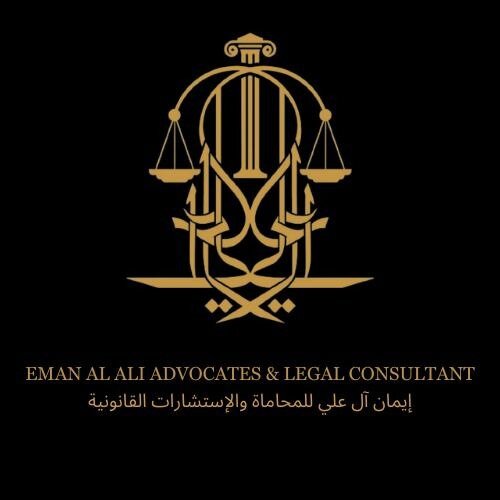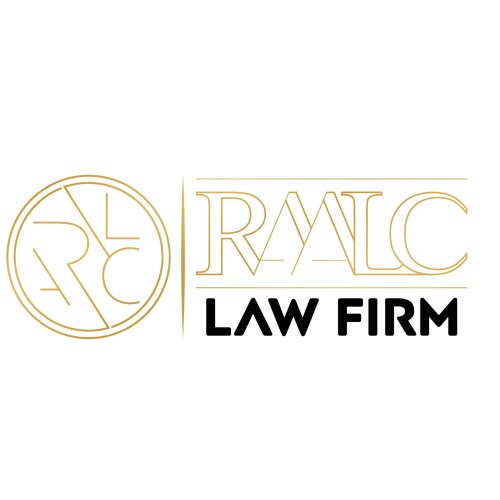Best Lawsuits & Disputes Lawyers in United Arab Emirates
Share your needs with us, get contacted by law firms.
Free. Takes 2 min.
Or refine your search by selecting a city:
List of the best lawyers in United Arab Emirates

Mohamed Eid Al Suwaidi Advocates & Legal Consultants
30 minutes Free ConsultationUnited Arab Emirates Lawsuits & Disputes Legal Articles
Browse our 3 legal articles about Lawsuits & Disputes in United Arab Emirates written by expert lawyers.
- Handling Dubai Rental Disputes: A 2025 Guide for Landlords and Tenants
- Introduction: Navigating the 2025 Rental MarketUnderstanding Dubai's Regulatory StructureDubai Land Department (DLD)Real Estate Regulatory Agency (RERA)Rental Disputes Center (RDC)The Legal Framework: Laws No. 26 and 33The Tenancy Agreement and Ejari RegistrationMandatory Registration RequirementsAutomatic Renewal ProvisionsThe 2025 Smart Rental Index RevolutionFrom Static Calculator to Dynamic AI SystemStar Rating System and Property... Read more →
- How Do I Resolve a Commercial Contract Dispute in the UAE?
- Table of ContentsIntroduction: Navigating Business DisagreementsUnderstanding the Legal Framework in 2025A Step-by-Step Guide to Dispute ResolutionStep One: Review the Contract ThoroughlyStep Two: Attempt Negotiation and MediationStep Three: Arbitration in the UAEStep Four: Litigation in UAE CourtsCommon Causes of Commercial Contract DisputesThe Role of Free Zones in Dispute ResolutionPractical Tips for... Read more →
- A Practical Guide to Resolving Labor Disputes Under the 2025 UAE Laws
- Table of ContentsIntroduction: A New Era for Workplace Conflict ResolutionUnderstanding the UAE's Employment Law FrameworkCore Employee Rights and ProtectionsThe Revolutionary Two-Track Dispute Resolution SystemTrack One: MOHRE Adjudication for Claims ≤ AED 50,000Track Two: The Court System for Claims > AED 50,000The Step-by-Step Dispute Resolution ProcessPhase 1: Filing the Initial ComplaintPhase... Read more →
About Lawsuits & Disputes Law in United Arab Emirates
The legal framework in the United Arab Emirates (UAE) concerning lawsuits and disputes is a composite of federal laws, local laws, and Sharia principles, adapted to suit a modern legal environment. The UAE follows a civil law system influenced by elements of Islamic law. Dispute resolution in the UAE primarily occurs through the court system, though alternative dispute resolutions methods like arbitration and mediation are increasingly growing in popularity. The court structure is tiered, primarily consisting of the Court of First Instance, the Court of Appeal, and the Court of Cassation (or Supreme Court). Each emirate operates its own judicial system, while the federal judicial system provides a cohesive legal framework.
Why You May Need a Lawyer
Individuals may seek legal advice for several reasons in the context of lawsuits and disputes:
- Contractual Disputes: Often arise in business transactions, employment agreements, and service provider contracts.
- Real Estate Disputes: Issues related to property ownership, rental agreements, and land use.
- Commercial Litigation: Referencing business-related legal conflicts, including shareholder disputes and breach of contract.
- Employment Disputes: Includes wrongful termination, discrimination, and wage discrepancies.
- Debt Recovery: Involves the enforcement of financial obligations.
- Family Disputes: Typically covered under personal status law, dealing with matters like divorce, custody, and inheritance.
- Tort Claims: Cases involving personal injury or property damage.
Local Laws Overview
Several key aspects of UAE law are particularly relevant to lawsuits and disputes:
- Jurisdiction: The choice between federal and local courts depends on the nature of the case and the agreements in place between parties. Some free zones, like the DIFC, have their own separate judicial systems.
- Limitation Periods: The UAE has specific time limits within which different types of lawsuits must be filed, known as prescription periods, which vary depending on the type of claim.
- Evidence Rules: UAE courts place significant reliance on documentary evidence, and evidence must often be notarized in order to be admissible.
- Enforcement of Judgments: Enforcing a judgment requires adherence to specific legal procedures. Moreover, UAE is a part of various international conventions that facilitate the recognition and enforcement of foreign judgments and arbitral awards.
- Alternative Dispute Resolution: Provisions for arbitration have been codified, attracting commercial parties to settle disputes outside of court.
Frequently Asked Questions
What is the first step to initiate a lawsuit in the UAE?
The first step is usually filing a complaint or a statement of claim, submitted to the Court of First Instance, along with all the necessary documents and payment of court fees.
How long does it typically take to resolve a dispute in court?
The time to resolve a dispute varies greatly, depending on the complexity of the case and court schedule, but it generally ranges from a few months to potentially several years.
Can a foreigner file a lawsuit in the UAE?
Yes, foreigners have the right to bring litigation in UAE courts and may also participate in arbitration proceedings.
Are there alternatives to resolving disputes outside of court?
Yes, arbitration, mediation, and conciliation are common methods used for resolving disputes outside of the traditional court system, especially in commercial matters.
What languages are used in UAE courts?
Arabic is the official language of the UAE courts. All documents must be translated into Arabic by a certified translator.
Can I represent myself in a legal dispute?
Yes, individuals can represent themselves, but it is recommended to engage a lawyer due to the complexities of the legal process.
What are the costs associated with legal proceedings?
Costs can include court fees, lawyer fees, translation fees, and other administrative expenses. The expense varies based on the complexity and duration of the case.
What is arbitration, and how does it differ from court litigation?
Arbitration is a private dispute resolution process where a neutral third party renders a binding decision, unlike court litigation, which is public. It can be faster and more flexible.
Is UAE a signatory to international enforcement treaties?
Yes, the UAE is a signatory to several international treaties, including the New York Convention on the Recognition and Enforcement of Foreign Arbitral Awards.
How are family disputes like divorce handled?
Family disputes are governed by the personal status law, with issues being resolved in Sharia courts, where applicable laws depend on the nationality and religion of the parties involved.
Additional Resources
For further assistance related to lawsuits and disputes in the UAE, you may find these resources helpful:
- Ministry of Justice: Offers guidance on legal procedures and services.
- Dubai International Financial Centre (DIFC) Courts: Provides an independent justice system for commercial matters within the DIFC area.
- Dubai Courts: Offers online services, case registration, and other legal assistance.
- Abu Dhabi Judicial Department: Manages judicial services in the Abu Dhabi emirate.
- Legal Aid Services: Various organizations offer free or low-cost legal advice and representation.
Next Steps
If you require legal assistance in lawsuits and disputes, consider the following steps:
- Identify Your Legal Needs: Determine the type of legal assistance you require based on your specific situation.
- Consult with a Lawyer: Engage a qualified legal professional with expertise in UAE laws. Initial consultations can help you understand your options and devise a legal strategy.
- Gather Documentation: Collect relevant documents and evidence to support your case.
- Consider Alternative Dispute Resolution: Explore ADR avenues, such as arbitration or mediation, which might offer quicker resolutions.
- Stay Informed: Keep yourself updated on relevant laws and legal procedures impacting your case.
Lawzana helps you find the best lawyers and law firms in United Arab Emirates through a curated and pre-screened list of qualified legal professionals. Our platform offers rankings and detailed profiles of attorneys and law firms, allowing you to compare based on practice areas, including Lawsuits & Disputes, experience, and client feedback.
Each profile includes a description of the firm's areas of practice, client reviews, team members and partners, year of establishment, spoken languages, office locations, contact information, social media presence, and any published articles or resources. Most firms on our platform speak English and are experienced in both local and international legal matters.
Get a quote from top-rated law firms in United Arab Emirates — quickly, securely, and without unnecessary hassle.
Disclaimer:
The information provided on this page is for general informational purposes only and does not constitute legal advice. While we strive to ensure the accuracy and relevance of the content, legal information may change over time, and interpretations of the law can vary. You should always consult with a qualified legal professional for advice specific to your situation.
We disclaim all liability for actions taken or not taken based on the content of this page. If you believe any information is incorrect or outdated, please contact us, and we will review and update it where appropriate.
Browse lawsuits & disputes law firms by service in United Arab Emirates
United Arab Emirates Attorneys in related practice areas.
Browse lawsuits & disputes law firms by city in United Arab Emirates
Refine your search by selecting a city.
















